 | The Norfolk Bat Survey was launched by Stuart Newson at the British Trust for Ornithology (BTO) in April 2013, to improve our understanding of bats and support their conservation. The BTO is an impartial research institute combining professional and citizen science. |
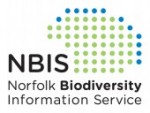 | The Norfolk Bat Survey was originally set up as part of a broader project led by Martin Horlock at the Norfolk Biodiversity Information Service (NBIS). NBIS is the Norfolk Local Record Centre holding information on species, geodiversity, habitats and protected sites across Norfolk. NBIS is also acting in Norwich as a "Bat Monitoring Centre" for the project. |
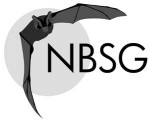 | The Norfolk Barbastelle Study Group (NBSG) is a specialist group that studies the distribution of Barbastelle bats in Norfolk. We are working with the NBSG to ground truth identification of cryptic bat species through mist-netting. |
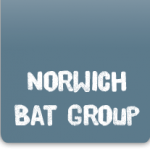 | The Norwich Bat Group was formed in 2007 and works to help protect, conserve and raise the awareness of bats in Norwich and the surrounding area. |
 | The National Trust was founded in 1895, with the aim of saving our nation's heritage and open spaces. Sheringham Park and Oxburgh Hall have been hosting equipment and acting as "Bat Monitoring Centres" since the beginning of the project. |
 | The Broads Authority looks after the Broads and the interests of the people who live, work and visit here. Toad Hole Cottage Broads Information Centre at How Hill National Nature Reserve has been hosting equipment and acting as a "Bat Monitoring Centre" since the beginning of the project. |
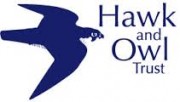 | The Hawk and Owl Trust is dedicated to conserving owls and other birds of prey in the wild – and increasing knowledge and understanding of them. Sculthorpe Moor Community Nature Reserve has been hosting equipment and acting as a "Bat Monitoring Centre" since the beginning of the project. |
| The Wildfowl & Wetlands Trust (WWT) is one of the world’s largest and most respected wetland conservation organisations working globally to safeguard and improve wetlands for wildlife and people. Welney Wetland Centre has been hosting equipment and acting as a "Bat Monitoring Centre" since the beginning of the project. | |
 | The Norfolk Library and Information Service offers so much more than just books, as this project is one example of that. Eight local libraries (Dereham, Long Stratton, Watton, Attleborough, Wells next-the-sea, Gaywood, Caister and Swaffham) are hosting equipment and acting as "Bat Monitoring Centres" for the project. |
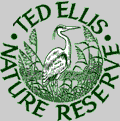 | The Ted Ellis Trust was founded to preserve Wheatfen. This is a strange primitive area recognised as a Site of Special Scientific Interest and is one of the last tidal marshes of the Yare Valley. The Trust wants to preserve its rich and fragile ecology, but above all, it wants to keep this land and its wildlife accessible for the enjoyment and education of children, students and everyone interested in Nature. The Ted Ellis reserve at Wheatfen has been hsoting equipment adn acting as a "Bat Monitoring Centre" since the beginning of the project. |
 | The RSPB is working to secure a healthy environment for birds and all wildlife. Titchwell Marsh has been hosting equipment and acting as a "Bat Monitoring Centre" since the beginning of the project. |
 | Dinosaur Adventure is Norfolk's best large visitor centre, the best place to see dinosaurs in the county and a great place for bats. Dinosaur Adventure has been hosting equipment and acting as a "Bat Monitoring Centre" since the beginning of the project. |
 | The Pennoyer Centre based in Pulham St Mary is hailed as the best community building in Norfolk. The Pennoyer Centre will be hosting equipment and taking part as a new "Bat Monitoring Centre" this year! Come and enjoy some of the best home-made cake in Norfolk in the Pennoyer cafe and borrow a detector. |
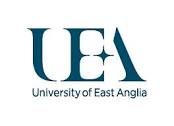 | Stuart Newson (Norfolk Bat Survey / BTO) and Iain Barr (UEA) have been co-supervising MSc student projects on bats since 2012. |
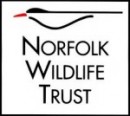 | Norfolk Wildlife Trust is working for the protection and enhancement of Norfolk's wildlife and wild places. |
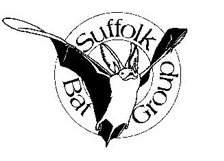 | Suffolk Bat Group is a specialist group within Suffolk Wildlife Trust and the county's main point of contact for all bat conservation related issues. The group acts to protect, enhance and create hibernation sites, carrying out surveys using bat detectors and computer software. The group also provides training on bat identification, ecology and sound analysis. |
 | Farm Conservation Limited provides independent environmental and conservation advice to landowners in East Anglia. Farm Conservation is a not for profit organisation which gained charitable status in 2012. It is led by a voluntary steering group of farmers, landowners and partner organisations (including Norfolk County Council, Norfolk Wildlife Trust, Natural England and Norfolk Historic Environment Service). |
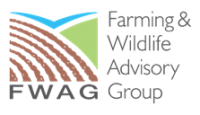 | The FWAG Association represent farmer's views on environmental issues, and helps promote public understanding of environmental improvements delivered by the farming community. |
 | The Norfolk Biodiversity Partnership is a unique consortium, bringing together the resources and expertise of over 20 local authorities, statutory agencies and voluntary groups in pursuit of a shared goal - the implementation of the Norfolk Biodiversity Action Plan (BAP). |
 | The Breckland Society was set up in 2003 to encourage interest and research into the natural, built and social heritage of the East Anglian. The Breckland Society have purchased their own detector kit to help improve our understanding of bats in the Brecks |
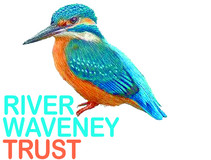 | The River Waveney Trust is a charity formed from the River Waveney Association. The Trust and its members care for the river, its ecology, water quality and environment guided by our local Catchment Plan. The Trust places a big emphasis on education and working with local communities. |
 | The Teacher Scientist Network is a science education charity (www.tsn.org.uk) striving to enhance science teaching in the region and keen to bring real science into the classroom. TSN has actively promoted the Bat Survey to schools across the region as a way to take-part in real science data gathering, whilst learning more about the habitats around a school. |
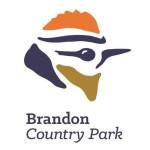 | Brandon Country Park is a great place for a day out. Thirty two acres, including landscaped parkland with lawn, lake, walled garden and a visitor centre with shop, tea room and heritage/natural history interactive and interpretation area. |
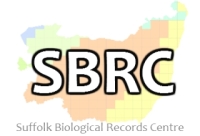 | The Suffolk Biological Records Centre is the One-Stop-Shop for biological information in Suffolk. Operating as an independent and objective centre for biological data the centre collates, manages and mobilises species and site information for the benefit of Suffolk’s wildlife as a whole. |
Norfolk Bat Survey
Working together for bats in Norfolk
